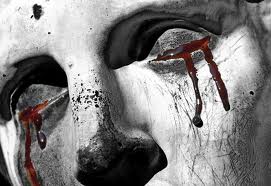October 1, 2012 A.P. English Literature

OCTOBER 1, 2012 - OCTOBER 5, 2012 WEEKLY AGENDA FOR A.P. ENGLISH LITERATURE Monday, October 1st: Go over Act 1, Scene 3: Laertes, Ophelia, Polonius Pair up and find examples of money and finance in Polonius' speech to Ophelia. For homework: Write a two paragraph mini-essay contrasting the extended metaphors used by Polonius in his speech to Ophelia and the extended metaphors used by Laertes in his speech to Ophela. What do the differences show in the two men's attitude towards Ophelia? This will be due on Thursday, October 4th. Read Act 1, Scene 4 in class; For homework: Find examples of figurative language in Act 1, Scene 4: write the examples, identify and explain how it relates to the theme, the characters, or plot points. Tuesday, October 2nd: Regular day! Read Act 1, Scene 5 in class. Watch Act 1, Scene 4 and 5 in the Kenneth Branagh's film, HAMLET For homework: Find examples of figurative language in Act 1, Scene 5: writ




